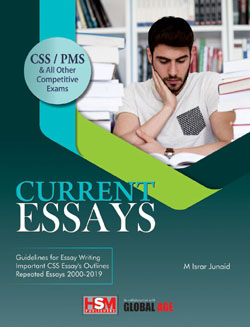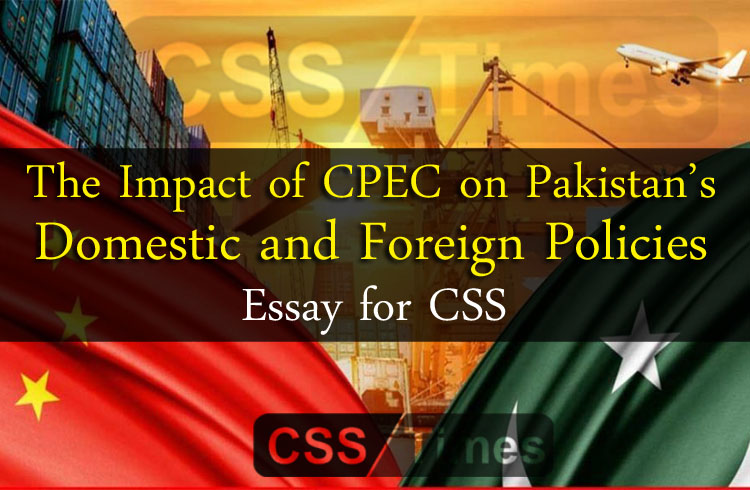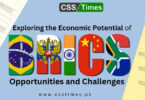A little more than two years after Xi Jinping’s visit to Pakistan, which marked the launch of the China-Pakistan Economic Corridor (CPEC), and in the wake of the Belt and Road Forum held in Beijing on 14-15 May 2017, it is an ideal time to provide a preliminary assessment of CPEC’s implications for Pakistan’s domestic politics as well as for the country’s geopolitical posture. With its $55 billion overall investment, CPEC represents the flagship project of China’s Maritime Silk Route initiative, aimed at the construction of ports, infrastructure, as well as road and rail connectivity in Pakistan, Bangladesh, and Sri Lanka. What has been CPEC’s impact so far? According to a recent report by the International Monetary Fund, CPEC is going to boost investment in Pakistan’s economy and there is general optimism in the country about the positive changes that CPEC would bring about.
A key aspect to understanding CPEC pertains to the changing nature of Sino-Pakistani ties. Following the launch of the economic corridor, Sino-Pakistani relations are going through the most important qualitative shift in their history of long-standing, ‘all-weather’ friendship. While until recent years the relationship was primarily based around a ‘metus hostilis’, namely the enmity of both countries vis-a-vis India, CPEC has allowed new players to get involved in the bilateral ties other than the People’s Liberation Army (PLA) and the Pakistani Army. During the recent BRI summit in Beijing, President Xi Jinping said that Pakistan and China should ‘increase interactions between governments, legislative bodies and political parties’. As a result, in Pakistan’s post-2013 political setup, the elected government was able to increase its grip on important CPEC-related decisions. Paradoxically, a relationship such as the one between Islamabad and Beijing, which has been centred on the military as the main interlocutors on both sides of the Karakoram Highway, has de facto enabled the civilian side to gain some space and leverage in important decisions. Although the military remain a key player in Sino-Pakistani ties (as demonstrated by China’s reliance on the Pakistani Army to provide security to CPEC projects), the elected government rejected the proposal to institutionalise the military’s role through the creation of a ‘CPEC authority’ on the grounds that such an authority would only increase the bureaucracy around CPEC and slow down significantly the implementation of the tranche of Chinese investments.
With regards to the geopolitical implications of the China-Pakistan Economic Corridor, a cursory survey of the current regional scenario presents a picture made of tensions, and a potential for cooperation which is yet to be fully tapped. CPEC has added an additional element of strain in Pakistan’s already tense relations with India. Sovereignty issues were repeatedly raised by the leadership in New Delhi mentioning CPEC’s route through Gilgit-Baltistan (part of the wider Kashmir issue) as the main reason why India is not going to take part in CPEC, and the BRI more broadly. India is also concerned that the port of Gwadar, the starting point of CPEC, would become a Chinese military outpost in the Arabian Sea. In November 2016, a Pakistan Navy official was quoted in a news report saying that China was willing to deploy its naval ships to safeguard the port of Gwadar. Besides raising concerns in India where all the main newspapers reported the claim, the latter came in the wake of reports in the Pakistani media that an Indian submarine was detected and prevented from entering Pakistani waters, with some headlines mentioning that the submarine was ‘Gwadar bound’. As this episode demonstrates, CPEC represents a major source of concern in New Delhi and of bilateral tensions between the latter and Islamabad.
Iran is another important player on the regional chessboard. Pakistan’s relations with Iran to date are a story of a great, though unfulfilled, potential. The early signs related to Iran’s involvement in CPEC seem to go in the same direction. Iran has expressed its desire to become a part of CPEC investment and China has also welcomed the opportunity for Tehran to contribute to the development of the economic corridor. In particular, the Chinese Ambassador to Pakistan, Sun Weidong, declared that ‘Iran can also be a very important country along the Belt and the Road initiative, so we really look forward to enhance our cooperation with Iran’. However, the recent killing of 10 Iranian border guards by the Pakistan-based terrorist outfit Jaish-ul-Adl, and Pakistan’s decision to send the former Chief of Army Staff, General (Ret) Raheel Sharif, to lead the Saudi-led coalition were not received well in Tehran. All in all, China is Iran’s main business partner and, under Beijing’s auspices, there is also potential for increased cooperation between Islamabad and Tehran.
In this cursory view of CPEC’s impact on Pakistan’s geopolitical posture, the aspect that has recently attracted a great deal of attention is the development of Pakistan-Russia relations. Before sketching out recent developments, it is important to mention that beyond the headlines the relationship between Islamabad and Moscow remains modest, especially if compared to the long-standing, deep historical ties between Russia and India. Trade relations remain weak; on the procurement side, Pakistan is behind India and Bangladesh in terms of arms supplies from Russia. Nevertheless, the situation is different from both Cold War-era dynamics and the virtually non-existent bilateral engagement until 2011. Since the announcement of China’s BRI, Pakistan and Russia signed a defence agreement in November 2014, conducted the first ever joint military exercise in October 2016, and a high level Russian military delegation visited both North and South Waziristan, where the Pakistani started the operation Zarb-e-Azb in June 2014.
On a more general note, CPEC has enabled the emergence of new actors other than the PLA and the Pakistani Army, resulting in a marked transition from a security-centred partnership, towards a quasi-alliance in which the economic dimension has become an important pillar. As far as Pakistan is concerned, the early harvest projects are now under construction and the Pakistan Muslim League (PML-N) government is hopeful that these will be completed in time for next year’s election. Making tangible the first effects of CPEC for Pakistani citizens by ending electricity shortages might be the first visible impact of the Chinese investment bonanza, as well as the ticket for the incumbent party to another five years in office. With the recent unfolding of the Panama Gate investigation about Nawaz Sharif family businesses, CPEC will be certainly played up by the PML-N in the run up to the 2018 elections. The latter is eager to be seen by the public as a government able to deliver on his electoral promises and will most likely craft a campaign around the benefits of CPEC in the attempt to overshadow the political repercussions caused by the Panama Gate investigation.
Book Source:

CSS Current Essays
Book Price: 495
Whatsapp your order at 03000459551 to get book at your doorstep with cash on delivery
Check our Collection of English Essays specially for CSS
- Essay Outline: Electoral Reforms in Pakistan: Necessity and Challenges
- Health for All | Essay Outline for CSS PMS
- Exploring the Economic Potential of BRICS Countries: Opportunities and Challenges
- Art and Morality Essay Outline
- Instruction in Youth is Like Engraving in Stone | Complete Essay with Outline
- Public Office is a Public Trust | Complete CSS Essay
- Essay Outline “Good Governance is deeply rooted in Human Development”
- CSS Essay Outline | The Importance of Water Conservation and Management
- How to Write Effective Essay for CSS Exams
- How to Write Effective Essay on Economy? 7 Steps








I would like to appreciate your efforts especially for the essays written for the fpsc descriptive test and shared on facebook but i thing that i feel that these essays will be more beneficial to aspirates if shared in form of pdf. Thanks will be in anticipation.
Book name